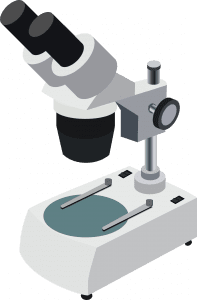Studien zu Ingwer
Unter dem Suchbegriff „Ginger“ findet man in der internationalen Datenbank Pubmed aktuell über 3000 Publikationen. Im Folgenden haben wir einige der interessantesten und aktuellsten Arbeiten aufgeführt, die auch für die Texte auf dieser Seite als Quelle gedient haben.
2018 A systematic review of the anti-obesity and weight lowering effect of ginger (Zingiber officinale Roscoe) and its mechanisms of action. Phytotherapy Research : PTR, 32(4), 577–585. https://doi.org/10.1002/ptr.5986
2018 Effects of Ginger (Zingiber officinale Roscoe) on Type 2 Diabetes Mellitus and Components of the Metabolic Syndrome: A Systematic Review and Meta-Analysis of Randomized Controlled Trials. Evidence-Based Complementary and Alternative Medicine : ECAM, 2018, 5692962. https://doi.org/10.1155/2018/5692962
2018 Pharmacotherapeutic potential of ginger and its compounds in age-related neurological disorders. Pharmacology & Therapeutics, 182, 56–69. https://doi.org/10.1016/j.pharmthera.2017.08.010
2018 Protective and therapeutic potential of ginger (Zingiber officinale) extract and [6]-gingerol in cancer: A comprehensive review. Phytotherapy Research : PTR. https://doi.org/10.1002/ptr.6134
2018 The effect of ginger supplementation on lipid profile: A systematic review and meta-analysis of clinical trials. Phytomedicine : International Journal of Phytotherapy and Phytopharmacology, 43, 28–36. https://doi.org/10.1016/j.phymed.2018.03.043
2018 A Functional Food Mixture “Protector” Reinforces the Protective Immune Parameters against Viral Flu Infection in Mice. Nutrients, 10(6). https://doi.org/10.3390/nu10060743
2018 How Safe Is Ginger Rhizome for Decreasing Nausea and Vomiting in Women during Early Pregnancy? Foods (Basel, Switzerland), 7(4). https://doi.org/10.3390/foods7040050
2017 Ginger—Mechanism of action in chemotherapy-induced nausea and vomiting: A review. Critical Reviews in Food Science and Nutrition. https://doi.org/10.1080/10408398.2013.865590
2017 Prebiotic Potential and Chemical Composition of Seven Culinary Spice Extracts. Journal of Food Science, 82(8), 1807–1813. https://doi.org/10.1111/1750-3841.13792
2017 Ginger Extract Suppresses Inflammatory Response and Maintains Barrier Function in Human Colonic Epithelial Caco-2 Cells Exposed to Inflammatory Mediators. Journal of Food Science, 82(5), 1264–1270. https://doi.org/10.1111/1750-3841.13695
2017 Biological activities of Allium sativum and Zingiber officinale extracts on clinically important bacterial pathogens, their phytochemical and FT-IR spectroscopic analysis. Pakistan Journal of Pharmaceutical Sciences, 30(3), 729–745.
2016 Ginger augmented chemotherapy: A novel multitarget nontoxic approach for cancer management. Molecular Nutrition & Food Research, 60(6), 1364–1373. https://doi.org/10.1002/mnfr.201500955
2016 Efficacy of Oral Ginger ( Zingiber officinale ) for Dysmenorrhea: A Systematic Review and Meta-Analysis. Evidence-Based Complementary and Alternative Medicine, 2016, 1–10. https://doi.org/10.1155/2016/6295737
2015 Efficacy of Ginger for Alleviating the Symptoms of Primary Dysmenorrhea: A Systematic Review and Meta-analysis of Randomized Clinical Trials. Pain Medicine (Malden, Mass.), 16(12), 2243–2255. https://doi.org/10.1111/pme.12853
2015 Efficacy and safety of ginger in osteoarthritis patients: A meta-analysis of randomized placebo-controlled trials. Osteoarthritis and Cartilage. https://doi.org/10.1016/j.joca.2014.09.024
2015 Gingerols and shogaols: Important nutraceutical principles from ginger. Phytochemistry. https://doi.org/10.1016/j.phytochem.2015.07.012
2015 6-shogaol inhibits breast cancer cells and stem cell-like spheroids by modulation of notch signaling pathway and induction of autophagic cell death. PLoS ONE, 10(9). https://doi.org/10.1371/journal.pone.0137614
2014 Zingiber officinale: A Potential Plant against Rheumatoid Arthritis. Arthritis, 2014, 159089. https://doi.org/10.1155/2014/159089
2013 Immunomodulatory activity of geranial, geranial acetate, gingerol, and eugenol essential oils: evidence for humoral and cell-mediated responses. Avicenna Journal of Phytomedicine, 3(3), 224–230.
2013 Fresh ginger (Zingiber officinale) has anti-viral activity against human respiratory syncytial virus in human respiratory tract cell lines. Journal of Ethnopharmacology, 145(1), 146–151. https://doi.org/10.1016/j.jep.2012.10.043
2012 Boosting of nonspecific host response by aromatic spices turmeric and ginger in immunocompromised mice. Cellular Immunology, 280(1), 92–100. https://doi.org/10.1016/j.cellimm.2012.11.014
2011 The Use of Ginger ( Zingiber officinale ) for the Treatment of Pain: A Systematic Review of Clinical Trials. Pain Medicine, 12(12), 1808–1818. https://doi.org/10.1111/j.1526-4637.2011.01261.x
2010 Molecular targets of [6]-gingerol: Its potential roles in cancer chemoprevention. BioFactors (Oxford, England), 36(3), 169–178. https://doi.org/10.1002/biof.78
2006 Macrophage-mediated inhibitory effect of Zingiber officinale Rosc, a traditional oriental herbal medicine, on the growth of influenza A/Aichi/2/68 virus. The American Journal of Chinese Medicine, 34(1), 157–169. https://doi.org/10.1142/S0192415X06003722
2002 Antibacterial effect of Zingiber officinale and Garcinia kola on respiratory tract pathogens. East African Medical Journal, 79(11), 588–592.
2000 Efficacy of ginger for nausea and vomiting: a systematic review of randomized clinical trials. British Journal of Anaesthesia, 84(3), 367–371.
1994 Isolation of antirhinoviral sesquiterpenes from ginger (Zingiber officinale). Journal of Natural Products, 57(5), 658–662.
